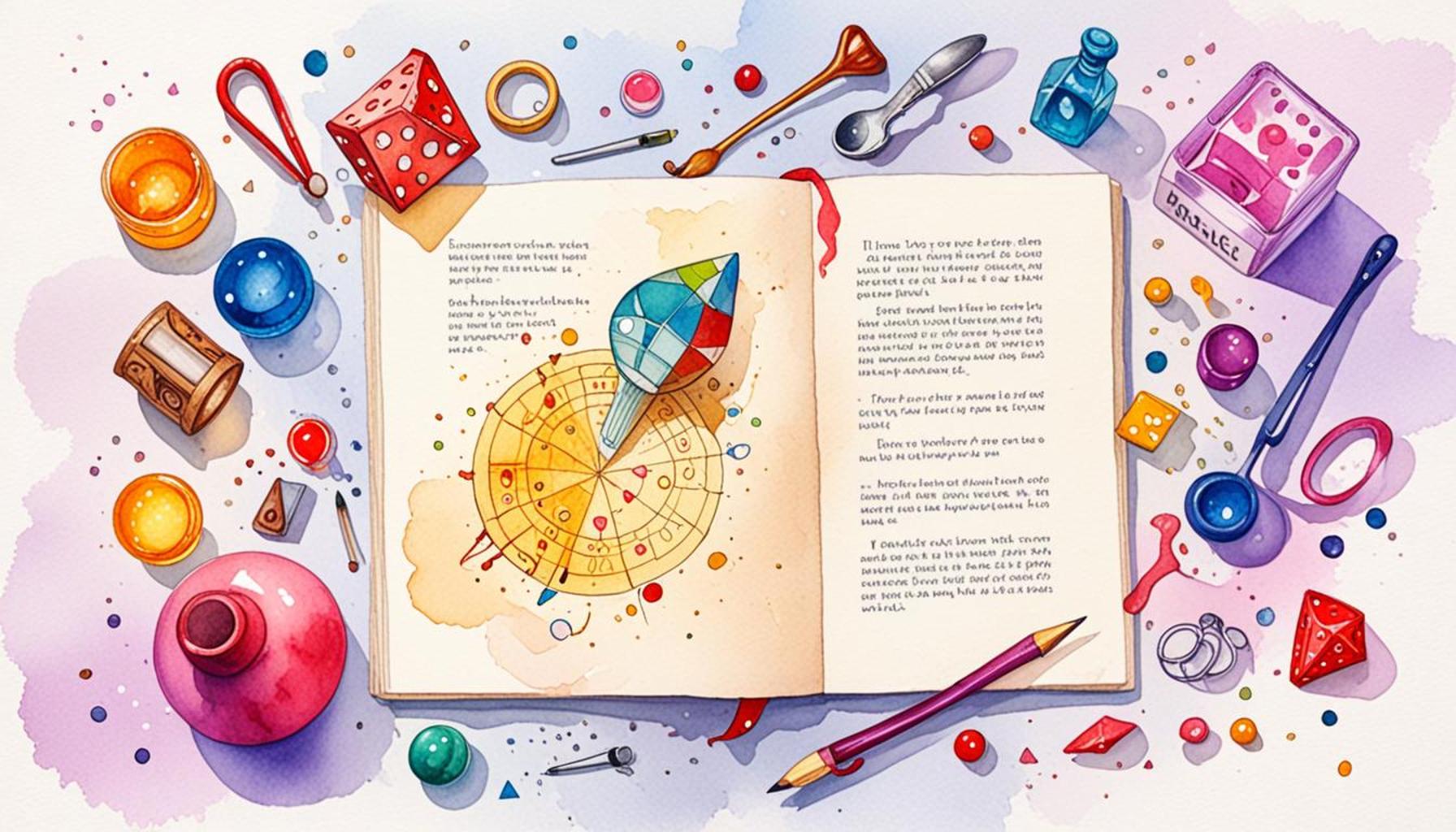Master Classic Riddles Efficient Tips for Quick Solutions

Unlocking the Secrets of Classic Riddles
Classic riddles have bewildered minds for generations, serving as both entertainment and a tool for sharpening logical thinking. Their enduring popularity is a testament to the challenge and fun they provide in engaging our cognitive skills. Whether you’re a casual puzzle solver or a seasoned enthusiast, mastering these enigmas can enhance your problem-solving abilities.
Why Bother with Riddles?
- Cognitive Benefits: Solving riddles improves critical thinking and increases mental agility.
- Social Interaction: Riddles often bring people together, sparking conversation and collaboration.
- Stress Relief: Engaging with puzzles provides a fun escape from daily routines.
In this article, we will explore effective strategies for cracking the toughest classic riddles efficiently. Prepare to elevate your skills as we present the Top 5 Tips for achieving quick solutions, allowing you to impress friends and challenge your own mind along the way.
Top 5 Tips for Efficiently Solving Classic Riddles
Riddles have captivated minds for centuries, testing our problem-solving skills and stimulating our imaginations. They come in various forms and complexities, transcending cultures and languages. Whether you’re looking to stump your friends, entertain your family, or sharpen your mental skills, knowing how to tackle riddles effectively is essential. Here’s a ranked list of the top five tips to help you solve classic riddles with efficiency.
5. Break the Riddle Down
One of the most effective ways to approach a riddle is to dissect the problem into smaller, manageable parts. This can prevent feelings of overwhelm and allows you to focus on each component of the riddle individually. Riddles are often constructed in a way that combines different elements of logic, perception, and language, challenging the solver to unravel each layer to uncover the hidden answer.
Start by identifying keywords and phrases within the riddle. Ask yourself:

- What is the main question being posed? Understanding the core of what’s being asked can provide clarity and direction.
- Are there any specific clues that stand out? Often, riddles will include hints or words that seem out of place, which are intended to guide you to the answer.
- What assumptions am I making? Consider whether you’re interpreting the riddle based on preconceived notions or biases, which could lead you away from the correct answer.
This method of breaking it down can help reveal insights that may not be immediately obvious, allowing for a more structured problem-solving approach. For instance, in the famous riddle “What has keys but can’t open locks?” knowing that ‘keys’ might not refer literally to those used for doors can lead you to the answer: a piano.
4. Consider Alternative Meanings
Classic riddles often use wordplay, double meanings, or misleading phrasing to create confusion. Therefore, thinking outside the box is crucial. Words in riddles can have multiple interpretations, so consider the riddle from different angles. This way of reasoning is not just a mental trick but a necessity, as most riddles rest on this dual interpretation to conceal their solutions.
For instance, the word “light” could refer to brightness or something that has little weight. Another example is the word “bark,” which could mean the sound a dog makes or the outer covering of a tree. Coming up with synonyms or considering homophones can often lead to the answer. Open your mind to the possibility that the riddle is not as straightforward as it seems.
3. Think Laterally
Traditional linear thinking may not be sufficient when tackling riddles. Instead, you need to apply lateral thinking, which involves approaching problems from new and different angles. This technique can often lead to creative solutions you may not have previously considered. While linear thinking follows a straightforward, logical path, lateral thinking embraces randomness and creativity.
To engage your lateral thinking, try brainstorming multiple potential answers without filtering them initially. Sometimes the most outlandish idea could align closely with the clever twist intended by the riddle. Consider, for example, the riddle, “I speak without a mouth and hear without ears. I have no body, but I come alive with the wind.” The answer, an ‘echo,’ connects ideas of voice and presence without a physical form, highlighting an unexpected connection.
Remember, riddles often hinge on non-linear, unexpected connections! Challenge your brain to make those leaps of logic, since that leap can illuminate the path to the correct solution.
2. Practice with Variety
The best way to become adept at solving riddles is through consistent practice with various types of riddles. Familiarize yourself with different styles—such as mathematical riddles, literary riddles, and those relying heavily on puns. This exposure can help build a toolkit of strategies that you can apply to new challenges, enhancing your adaptability and response time.
As you practice, consider keeping a log of the riddles you’ve solved and the techniques that worked. By reflecting on your experiences, you’ll develop a sharper intuition for patterns and common elements in riddles. Many online platforms and books focus specifically on riddles, offering ample opportunities for practice. Whether they challenge your numerical skills or linguistic capabilities, each riddle type enriches your cognitive flexibility.
Moreover, engaging regularly with riddles can sharpen your analytical thinking and foster a playful approach to problem-solving that transcends into everyday life, equipping you with the patience and analytical skills useful in various scenarios.
1. Take Your Time
Perhaps the most straightforward yet vital tip is to exercise patience. Riddles are designed to challenge, and rushing through them often leads to frustration or missed clues. Allow yourself the space to think, and don’t be afraid to step away and return later with fresh eyes. This technique is rooted in giving your subconscious time to process the riddle.
Taking your time can also help you approach the riddle with a relaxed mindset, allowing for more comprehensive thought processes and eventual discoveries. Remember that the journey of solving the riddle should be as enjoyable as reaching the solution itself. Enjoy the playful challenges they pose and cherish the moment of revelation when an answer clicks into place. It’s not just about solving the puzzle but also savoring the stimulating journey.
By employing these strategies, you will not only enhance your riddle-solving skills but also enjoy the engaging journey of critical thinking and creativity. Don’t hesitate to challenge yourself and explore the wonderful world of riddles! Engaging with these mental puzzles can boost your cognitive abilities, improve your lateral thinking, and potentially even enhance social gatherings with a fun challenge.
| Category | Details |
|---|---|
| Logical Reasoning | Effective riddles often require a strong ability to analyze information logically and draw conclusions. Improving logical reasoning skills can significantly enhance a person’s ability to solve riddles. |
| Pattern Recognition | Many classic riddles rely on hidden patterns or wordplay. Recognizing these patterns can provide hints that lead to the solution, making this skill invaluable for solving riddles efficiently. |
| Divergent Thinking | This involves thinking outside the box to come up with multiple possible answers. Divergent thinking skills are essential when conventional logic alone doesn’t yield results, and they can often uncover unique solutions to complex riddles. |
| Practice and Exposure | Regularly engaging with a variety of riddles helps hone problem-solving strategies. Exposure to diverse riddles enhances familiarity with different types and improves overall solving speed and efficiency. |
Engaging with classic riddles can be an exhilarating pursuit, providing not only fun but also a robust mental workout. As one dives deeper into this captivating world, it becomes increasingly evident that the underlying skills contribute to more than just solving riddles; they can foster a sharper, more agile mind. Techniques such as practicing logical reasoning and recognizing patterns are not only important for puzzles but also beneficial in everyday decision-making processes. Moreover, embracing training in divergent thinking can break mental barriers, enabling individuals to approach challenges from fresh perspectives. Ultimately, the journey through riddles serves as a path to enhanced cognitive abilities, encouraging enthusiasts to explore further and unlock their potential.
Frequently Asked Questions about Classic Riddle Solving
What are some effective strategies for solving classic riddles?
The key to solving classic riddles lies in understanding the underlying pattern or wordplay. Many riddles utilize metaphors, puns, and lateral thinking. Don’t take the words at face value; instead, try to grasp the double meanings or associations. Another effective technique is to break down the riddle into parts and form associations or connections between them.
How can I improve my lateral thinking skills to tackle riddles better?
Lateral thinking is crucial in riddle-solving as it involves creative problem-solving and looking at problems from new angles. To enhance these skills, engage in activities that challenge your conventional thought processes. Practice solving puzzles, play strategic games, and regularly engage in brain training exercises. This can facilitate a more flexible mindset, allowing ideas and solutions to emerge instinctively when faced with a riddle.
Why is it essential to remain patient while solving riddles?
Patience plays a vital role in solving riddles, as it prevents jumping to conclusions prematurely. Many riddles are designed to be deceptive, and quick answers often overlook subtle hints and intricate details. Taking your time allows you to explore alternative possibilities and fine-tune your interpretation, ultimately leading to a more accurate solution.
Is collaborating with others more effective for solving riddles?
Collaboration can indeed enhance the riddle-solving process. Different people bring diverse perspectives and can initiate thought processes you might not consider. Sharing ideas and discussing possibilities often uncovers new angles and solutions, making complex riddles more approachable. However, ensure the group remains focused and doesn’t deviate from the task.
Conclusion
Diving into the world of riddles not only serves as a delightful pastime but also a powerful exercise for our cognitive abilities. In exploring the essence of ‘Dicas para resolver riddles clássicos com eficiência’, we have navigated through core strategies that promise to sharpen one’s problem-solving skills. The crux of the discussion revolves around enhancing observation skills, applying lateral thinking, breaking down questions into manageable parts, collaborating with others, and nurturing an open and curious mindset.
Observation skills play a pivotal role, prompting us to pay close attention to details that often hide in plain sight. By cultivating lateral thinking, we stimulate the mind to explore unconventional pathways, viewing problems from new angles. The practice of breaking complex riddles down into simpler parts encourages a more structured approach, allowing solvers to tackle each element systematically. The aspect of collaboration showcased how teamwork and diverse perspectives can uncover solutions that might elude solitary efforts. Lastly, fostering an open-minded attitude is vital, as it empowers us to embrace ambiguity and explore ideas without preconceived limitations.
These techniques not only serve to enlighten and entertain but also provide cognitive benefits that extend beyond the challenge of the riddle itself. By incorporating these strategies, enthusiasts can hone their abilities to think critically and creatively, fostering skills useful in everyday situations. As with any discipline, continuous practice is paramount, and the beauty of riddles lies in their limitless variety and adaptability. Ultimately, the pursuit of unlocking these enigma-like puzzles reflects an enduring human curiosity and an extraordinary tool for mental agility.
Related posts:
How to Use Mental Challenges to Effectively Reduce Stress
Fun Brain Teasers Examples for Friends Group Activities
Boost Focus Attention Use Brain Teasers Effectively for Training
Boost Learning with Brain Teasers Enhance Cognitive Processes
Creative Brain Teasers Strategies to Design Your Own Puzzles
Boost Critical Thinking with Fun Brain Teaser Activities

Beatriz Johnson is a seasoned puzzle enthusiast and writer with a passion for unraveling the complexities of mind games and brain teasers. With over a decade of experience in the world of puzzles, she specializes in topics like logic games, riddles, and strategic challenges. Through her work, Beatriz empowers readers to sharpen their problem-solving skills, think creatively, and stay engaged in the ever-evolving landscape of mind games and puzzles.